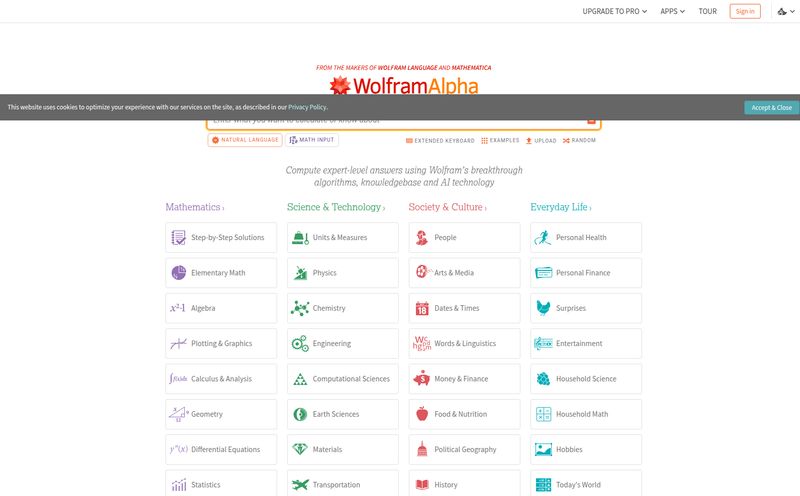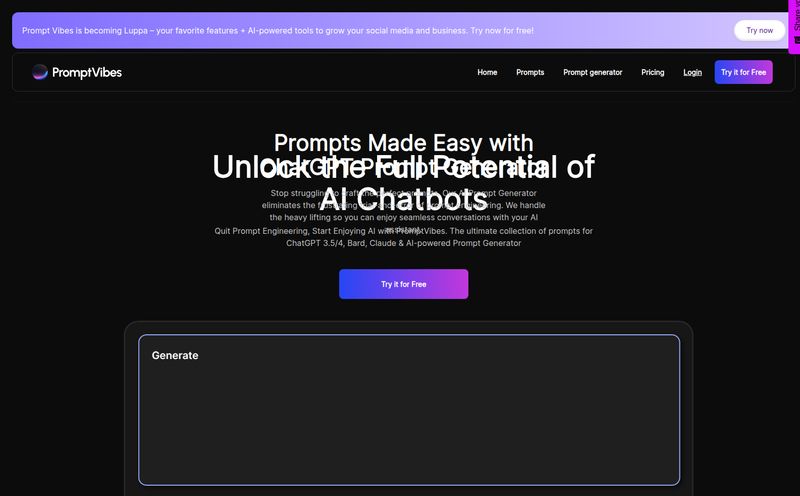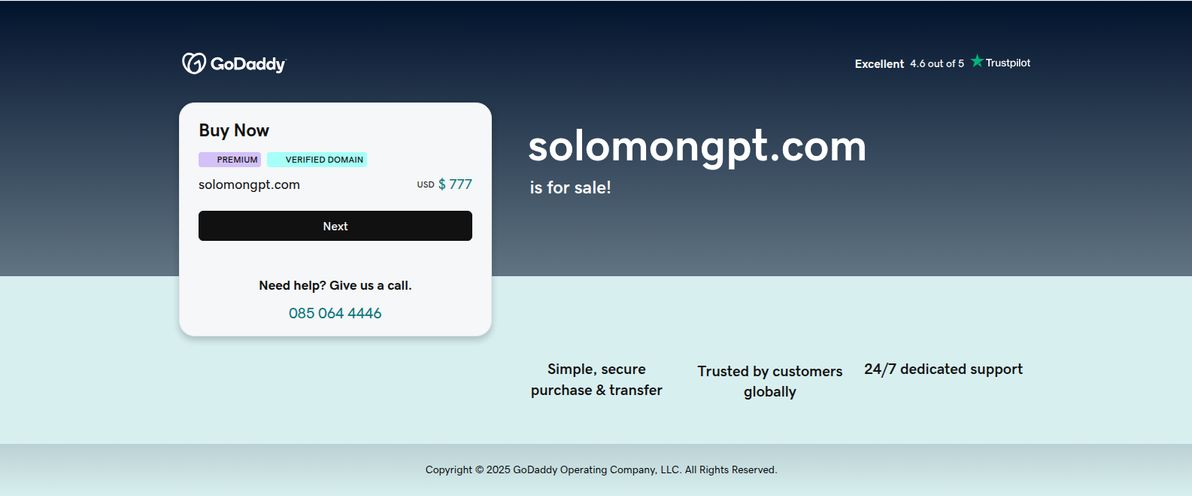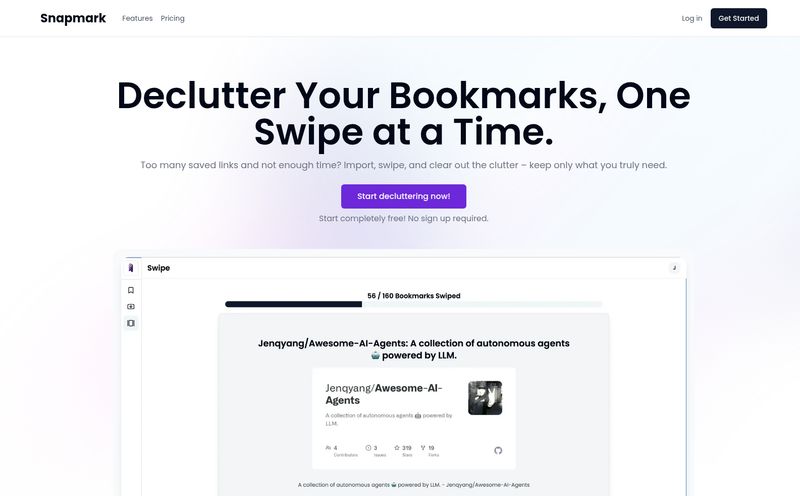We've all been there. You're sitting in a meeting, and someone a few pay grades above you says, "We need to leverage our data with AI!" Everyone nods. It sounds fantastic. Then you look at the 'data'—a horrifying mess of PDFs from 2007, labyrinthine SharePoint sites, and inscrutable financial reports that look like they were designed by M.C. Escher.
The dream of a smart, conversational AI that can answer questions about your business hits the cold, hard reality of data ingestion. It's the least glamorous part of AI, but it's where 90% of projects go to die. For ages, we've been duct-taping together libraries, writing custom parsers, and praying. That's the world LlamaIndex waltzed into, and I've gotta say, it’s been making some serious waves.
I’ve been in the SEO and traffic game for years, and I’ve seen trends come and go. But this shift towards Retrieval-Augmented Generation (RAG) feels different. It's practical. It's about making Large Language Models (LLMs) smarter by giving them access to our documents, not just the whole internet. And LlamaIndex is positioning itself as the go-to toolkit for doing just that.
So What Exactly Is LlamaIndex?
Forget the marketing fluff for a moment. At its core, LlamaIndex is a data framework. Think of it as the ultimate plumbing and electrical system for a custom AI brain. You have the raw intelligence (the LLM, like a GPT model) and you have the knowledge (your messy data). LlamaIndex is the sophisticated system that connects the two, allowing the brain to intelligently access and reason over the knowledge.
It’s built for developers who need to create applications that can query unstructured and semi-structured data. We're talking about building knowledge assistants that don't just hallucinate answers but can point to the exact source document for their claims. In an enterprise setting, that’s not a nice-to-have; it's everything.
The Core Features That Actually Matter
A platform is only as good as its tools. LlamaIndex breaks down the monumental task of building a RAG system into manageable, powerful components. Some of these are just… chef’s kiss.
LlamaParse: The Document Whisperer
I need to spend a minute on this, because if you've ever tried to extract tables from a PDF using open-source tools, you know the pain. It’s a soul-crushing experience that makes you question your career choices. LlamaParse is LlamaIndex's answer to this. It’s a proprietary parsing service that is, frankly, shockingly good.
It’s specifically designed to handle complex documents with embedded tables, charts, and weird hierarchical layouts. I fed it a few gnarly annual reports that have broken other parsers, and it handled them with a grace I didn’t think was possible. This alone is a massive win and a huge time-saver. It’s the difference between spending a week writing custom extraction logic and getting to the fun part in an afternoon.
Building Your Retrieval Pipeline
This is where the flexibility comes in. LlamaIndex isn’t a rigid, black-box system. It’s a framework. You can assemble, mix, and match components to build the perfect retrieval strategy for your specific need. Want a simple vector search? Done. Need a more complex system that uses a small-to-big retrieval approach, summarizing chunks before feeding them to the final LLM? You can build that. This flexibility is a double-edged sword, of course. It means you need to know what you’re doing. It requires a bit of technical savvy, but for teams that need control, it’s perfect.
From Framework to Production with LlamaCloud
It's one thing to build a cool prototype on your laptop. It’s another thing entirely to run it in production, reliably, at scale. This is where LlamaCloud comes in. It’s the managed service for deploying and observing the RAG applications you build with the LlamaIndex framework. It handles the ingestion pipelines and provides a place for your production agents to live. It's the logical next step from a local script to a real, enterprise-grade service.

Visit LlamaIndex
Let's Talk Money: The LlamaIndex Pricing Tiers
Alright, let's get down to brass tacks. What's this going to cost? The pricing page is refreshingly clear, which I always appreciate. They’ve got a structure that scales from a single developer tinkering on a weekend to a full-blown enterprise deployment.
| Plan | Price | Best For | Key Features |
|---|---|---|---|
| Free | $0 /month | Hobbyists & individual developers | 10K LlamaCloud credits, 1 user, 5 indexes, basic support |
| Starter | $50 /month | Startups & small teams | 50K credits (plus pay-as-you-go), 5 users, 50 indexes, more data sources |
| Pro | $500 /month | Growing businesses & production apps | 500K credits, 10 users, 100 indexes, all data sources |
| Enterprise | Custom | Large organizations with specific needs | Unlimited everything, dedicated support, VPC deployment |
The free tier is genuinely useful for getting your feet wet. The Starter plan at $50 feels like the sweet spot for a small team trying to build an MVP. Once you hit the Pro tier, you're clearly running something serious. The credit system for LlamaCloud services is something to keep an eye on, but it’s a fair model that lets you pay for what you use.
The Good, The Bad, and The Code-Heavy
No tool is perfect. Let's have an honest chat about the highs and lows.
What I Love About LlamaIndex
The speed you can go from a folder of messy documents to a working Q&A prototype is incredible. It feels like it was built by people who have actually felt the pain of this process. The flexibility of the indexing and retrieval mechanisms means you aren’t locked into one way of thinking. And the community is active and vibrant. I've seen the LlamaIndex team respond to issues on GitHub with impressive speed. That kind of support is invaluable when you're deep in a project.
Where You Might Stumble
Look, this isn't a drag-and-drop, no-code platform. If you’re not comfortable writing Python and thinking about data structures, you're going to have a bad time. The initial setup and configuration of a complex data pipeline can be... well, complex. The documentation is good, but there's a definite learning curve. This is a framework for builders, not a turnkey solution for business users. And while the credit system is fair, you do need to monitor your LlamaCloud usage to avoid a surprise bill.
Who is LlamaIndex Actually For?
"LlamaIndex is less of a pre-built car and more of a high-performance engine and chassis. You still have to build the car around it, but man, that engine can scream."
That's how I've started describing it to people. It's for the development team at a startup building a next-gen AI feature. It's for the data science group within a large corporation tasked with creating an internal knowledge search tool that actually works. It's for anyone who needs to build a bespoke RAG application and wants fine-grained control over how their data is indexed and retrieved.
Who is it not for? Probably the marketing team that just wants to add a simple chatbot to their website. There are simpler, more out-of-the-box solutions for that. This is for the heavy lifting.
Frequently Asked Questions about LlamaIndex
- Is LlamaIndex free to use?
- Yes and no. The core LlamaIndex framework is open-source and free to use. You can build and run applications on your own infrastructure with it. LlamaCloud, their managed platform for production deployment and parsing, operates on a tiered pricing model with a free starting point.
- How is LlamaIndex different from LangChain?
- This is the classic question! They started with different focuses and have since grown to overlap. Historically, LlamaIndex was laser-focused on the data ingestion and retrieval part of RAG—the 'R' and the 'G'. LangChain was initially broader, focusing more on chaining LLM calls and building agents. Today, both can do a lot of what the other does, but many developers still feel LlamaIndex has a deeper, more refined toolset specifically for the data framework side of things.
- Do I need to be a Python expert to use it?
- You don't need a PhD in computer science, but you do need to be comfortable with Python. You'll be writing code, installing packages, and debugging scripts. If you're new to Python, you'll face a steep learning curve.
- Can it handle my company's weird, complicated documents?
- This is one of its biggest strengths. Thanks to services like LlamaParse, it's exceptionally good at handling complex PDFs, tables, and hierarchical documents that would choke many other systems. It’s one of the main reasons to choose it.
- What is LlamaCloud again?
- Think of it as the production-ready, managed hosting for your LlamaIndex applications. It takes the hassle out of deploying, scaling, and monitoring your data ingestion pipelines and AI agents, so you can focus on building the app itself.
My Final Thoughts
So, is LlamaIndex the ultimate Swiss Army knife for RAG development? In my experience, it's pretty darn close. It's a thoughtfully designed, powerful, and flexible framework that solves a very real, very painful problem. It strikes a great balance between providing high-level abstractions to get you started quickly and low-level control for when you need to optimize.
It’s not a magic wand. You still need to bring your coding skills and a clear idea of what you want to build. But it clears away so much of the undifferentiated heavy lifting, especially around document parsing, that it lets you focus on creating real value. For any team serious about building knowledge assistants on their own data, LlamaIndex should be at the very top of their list to evaluate. It’s a serious tool for a serious task.



